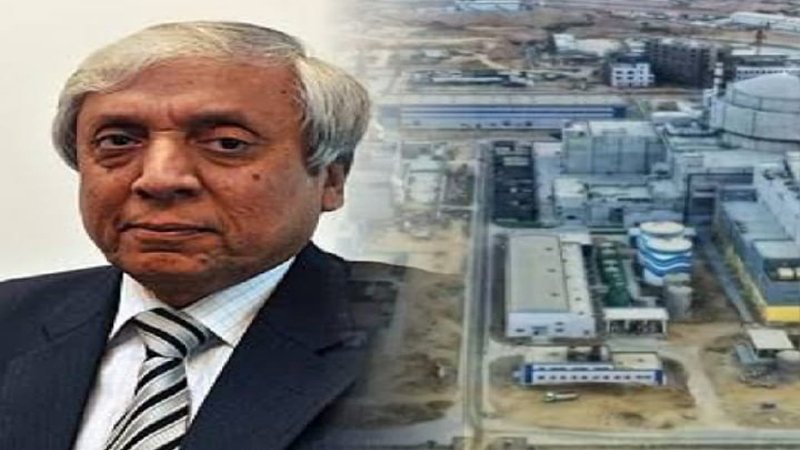Dr. Ansar Pervez, a former chairman of the Pakistan Atomic Energy Commission, claimed that Pakistan can use civil nuclear tech to solve the majority of its problems.

Dr. Ansar Pervez, a former chairman of the Pakistan Atomic Energy Commission, claimed that Pakistan can use civil nuclear tech to solve the majority of its problems. Currently, he claimed, there is an energy crisis, and six nuclear power plants provide about 3500 MW of cheap, enduring, and environmentally friendly electricity.
He made these remarks to use civil nuclear tech to solve majority of its problems at a seminar on “How important is traditional and non-traditional security for Pakistan” hosted by the Center for International Strategic Studies Sindh and the Department of International Relations at the University of Karachi. The seminar was held in the university’s HEJ Auditorium.
Dr. Ansar Pervez continued, “Pakistan Atomic Energy Commission also offers services in the areas of industry, agriculture, health, the environment, and education.
Dr. Khalid Mahmood Iraqi, vice chancellor of the University of Karachi, claimed that Pakistan is impacted by the regional game being played by foreign powers. He urged Pakistan to pay attention to all sectors, noting that China and India trade despite their differences.
Brigadier (Rtd) Agha Ahmed Gul, director of the Balochistan Think Tank Network stated that Pakistan has been dealing with issues like water distribution and occupations in Kashmir since the subcontinent was divided. He continued, “Modi’s Hindutva policy has also grown to be a significant threat to the peace of the region.
He further stated that Pakistan now places a high priority on both conventional and unconventional forms of protection. According to former ambassador Qazi M. Khalilullah, a bilateral agreement in which Pakistan played a significant role helped bring about peace in Afghanistan after a protracted war.
He believed that the conflict needed to be resolved and added that China’s mediation had finally resulted in the improvement of relations between Saudi Arabia and Iran.
“Pakistan is prepared to handle external threats, but it also has to deal with modern threats like cyberwar and climate change. The floods from last year cost us about $15 billion. To ensure protection from economic risk, Pakistan must also examine its finances, said Qazi M. Khalilullah.
According to former ambassador Zameer Akram, Pakistan wants to resolve its security issues in accordance with the United Nations Charter.
He also noted that the issues of Palestine and Kashmir are crucial to our foreign policy. She claimed that the conflicts in the nations of Asia and Africa had changed after colonialism ended. 7,000 of our soldiers, according to Zameer Akram, are a part of the global peacekeeping mission.
Dr. Zafar Nawaz Jaspal said that India is developing nuclear weapons on modern lines and has exceeded the range of its ballistic missiles by 5,000 km.
The seminar was attended by Senior Journalist and analyst and Nusrat Mirza, a large number of students and dignitaries. The IR Department vowed that experts will be invited on similar topics in the future to help students face the changing conditions and emerging challenges of the world.